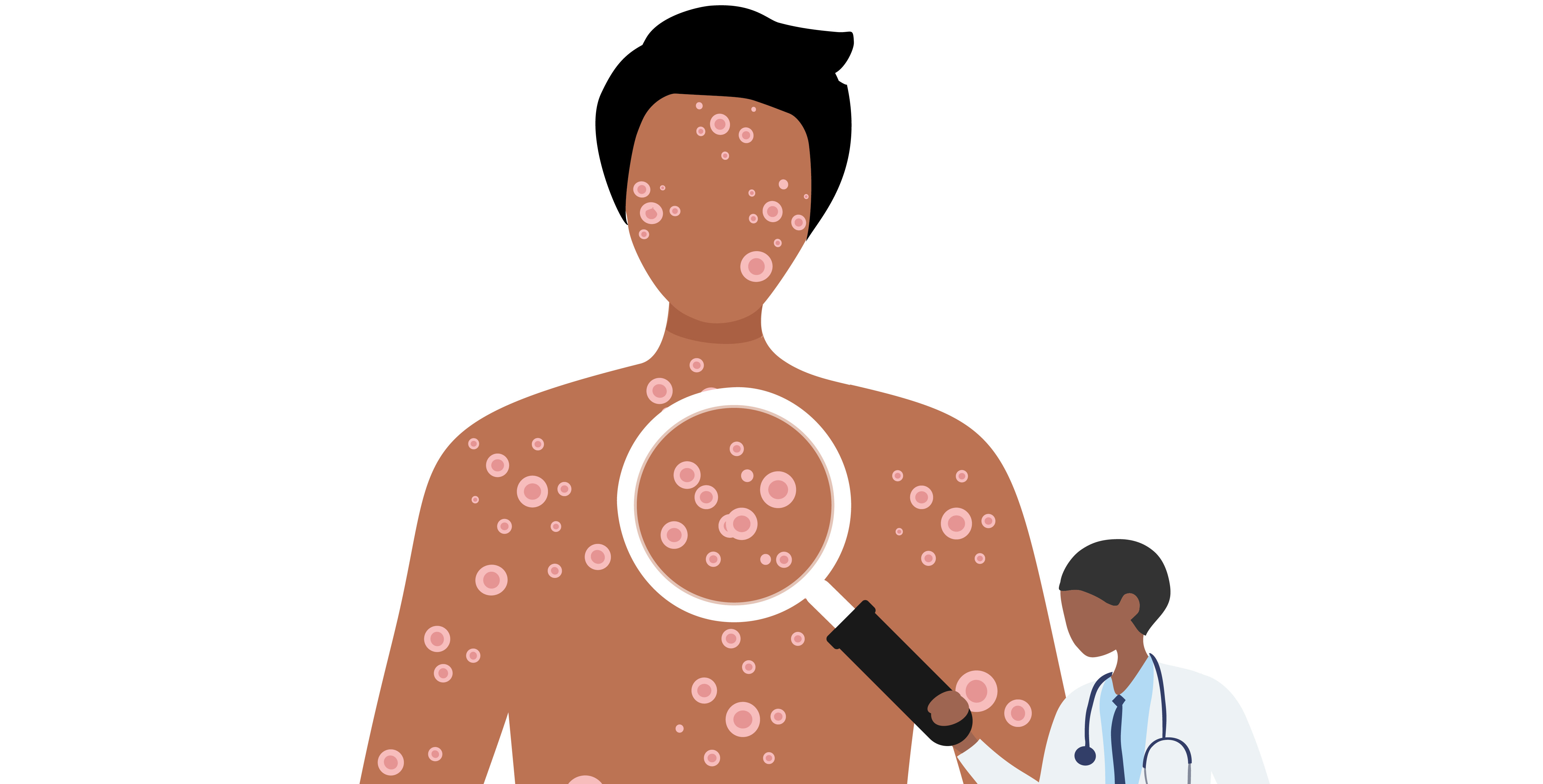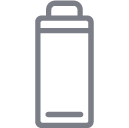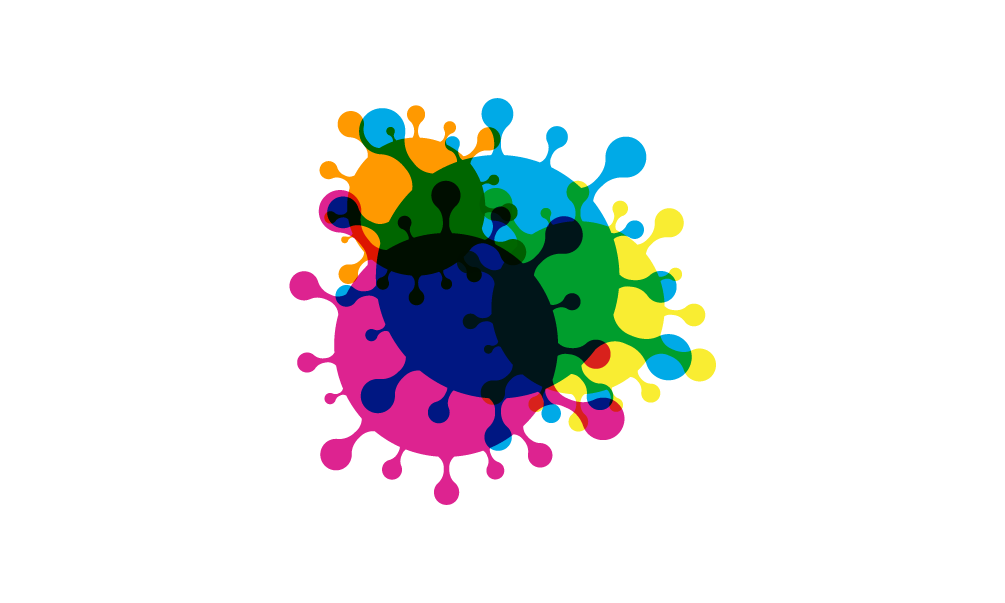On July 23, 2022, the World Health Organization (WHO) declared monkeypox a global health emergency. Monkeypox is a disease that is spreading in the U.S. at this time. SFHP follows CDC guidance on monkeypox and will follow up-to-date nation and state guidance on this health issue. It is worthy to note that the guidance on monkeypox is changing with any new info. For the most recent info on monkeypox, please visit the CDC website.
Monkeypox is a disease that is caused by contact with the monkeypox virus. It is spread through close contact and can cause a rash on any part of the body. The rash may look like pimples or blisters. The rash often starts 1 to 3 days after having flu-like symptoms, such as fever, headache, muscle ache, or swollen lymph nodes. The rash often starts on the face then spreads to other parts of the body. Monkeypox does not spread before flu-like symptoms show. It often takes 7 to 14 days for symptoms to show after being infected but may range from 5 to 21 days.
Any person can spread monkeypox through contact with body fluids, monkeypox sores, or shared items, such as clothes and bedsheets. Monkeypox can also spread by breathing at a very close range with an infected person for a long time, such as in the same house. Common household cleaners can kill the monkeypox virus.
Monkeypox can be serious though most cases go away on their own. Any person who may have been exposed to monkeypox or have any symptoms should call the SFHP Nurse Advice Line. Or you can get 24/7 health advice through no-cost telemedicine*. If you have more questions, please call your primary care provider (PCP*). If you need help finding the phone number of your PCP, please call SFHP Customer Service.

SFHP Customer Service:
1(415) 547-7800 weekdays from 8:30am – 5:30pm
SFHP Nurse Advice Line:
1(877) 977-3397 24 hours, 7 days a week
*Telemedicine is 24/7 health care by phone or video at teladoc.com/sfhp or call 1(800) 835-2362.
*Your PCP is the doctor, nurse practitioner, or physician assistant who is in charge of your health care.
Monkeypox vaccines are offered only to people who meet the criteria right now. For info on who can get the shot, click here.
Visit the San Francisco Department of Public Health website for the most updated monkeypox information and cases.
Frequently Asked Questions
- A rare disease caused by contact with the monkeypox virus.
- It can cause a skin rash that appears 1-3 days after feeling weak, having a fever, headache, muscle aches, and swollen lymph nodes (glands that fight disease).
- Monkeypox is often mild and rarely deadly, but it can be serious for some people.
For more info, visit the CDC website.
No, monkeypox virus is not new. Monkeypox virus was first found in 1958 in monkeys kept for research in Denmark. The first human case was found in 1970 in Africa. People who got monkeypox became sick after close contact to a sick animal, like squirrels, rodents, and monkeys that live in tropical rainforests. It may follow a bite or scratch, or after eating undercooked meat that has monkeypox.
Often, monkeypox will start with flu-like symptoms:
 Fever
Fever Headache
Headache Swollen lymph nodes
Swollen lymph nodes Feeling weak
Feeling weak
![]() A rash can appear after 1-3 days at any place on the body and spread:
A rash can appear after 1-3 days at any place on the body and spread:
- In some recent cases, the rash may start on the genitals or anus.
- Over 1-2 weeks the rash may change from small, flat spots to tiny blisters, and then to larger blisters filled with pus.
- Blisters can take weeks to scab.
Often the monkeypox rash will go away on its own within 2-4 weeks. Any person with a rash or feeling ill should seek health advice right away.
- Close skin-to-skin contact with an infected person, such as kissing or sex.
- Direct contact with infected personal items, such as bedsheets, towels, clothing, and kitchen items.
- Breathing at very close range with an infected person for a long time, such as inside a house.
- Direct contact with bodily fluids of an infected person.
Monkeypox is not a sexually transmitted infection (STI) because it can be spread through any bodily contact not just through sex.
For more info, visit the CDC website.
For more info about “Monkeypox facts for those sexually active”, visit the CDC website.
Monkeypox can be spread from the time a person shows flu-like symptoms up until a rash has fully healed and a fresh layer of skin has formed. It does not spread before symptoms appear. If you have any symptoms of monkeypox, please seek health advice at once.
Please see the CDC isolation info.
To lower the risk of getting monkeypox, any person should not:
- have close, skin-to-skin contact with an infected person.
- touch the rash or scabs of an infected person.
- kiss, hug, cuddle, or have sex with an infected person.
- touch the bedsheets, towels, clothing of an infected person.
- share kitchen items with an infected person.
If you are caring for a person who has monkeypox, protect yourself by:
- wearing a well-fitting mask.
- using gloves.
- always washing your hands with soap and water.
- staying apart when you can.
- getting a monkeypox vaccine.
For more info, visit the CDC website.
- Call the SFHP Nurse Advice Line or telemedicine* at no-cost to SFHP members.
- Call your primary care provider (PCP*) for questions. Call SFHP Customer Service if you need help finding the number of your PCP.
- Stay home and away from people and pets.
- If you have a rash or sores cover them with clothes or a bandage before you leave isolation.
- Wear a well-fitting mask over nose and mouth if going to any health visits.
SFHP Customer Service: 1(415) 547-7800 weekdays from 8:30am – 5:30pm
SFHP Nurse Advice Line: 1(877) 977-3397 24 hours, 7 days a week
*Telemedicine is 24/7 health care by phone or video at teladoc.com/sfhp or call 1(800) 835-2362.
*Your PCP is the doctor, nurse practitioner, or physician’s assistant who is in charge of your health care.
For info on staying home, visit the CDC website.
For CDC “guidance for pets in the home”, visit the CDC website.
- You must have a rash or spots to get a monkeypox skin test.
- The monkeypox test is done on your skin with a swab by a health worker.
- The swab is rubbed against spots on your skin or your rash and then sent to a lab for monkeypox testing.
- The first lab test result should be ready in a few days. Be sure to take steps to care for yourself and others while waiting:
- Stay home and away from others.
- Limit spread in your household.
- Put off travel on public transit.
- Wear a well-fitting mask if you have a health visit.
- Call, text, or contact your sex partners and people you have had close contact with since symptoms started.
- Protect any pets.
For more info, visit the CDC website.
Any person is at risk for monkeypox. Monkeypox can be serious, though most cases go away on their own. Serious cases can involve pneumonia (lung sickness), loss of sight from eye infection, and sepsis (a sickness that can cause death).
Those most at risk for serious sickness are:
- Young children less than 8 years old
- Pregnant women
- Immunocompromised people
- People with a history of skin disease such as eczema
Often, monkeypox will go away on its own without any medication. At this time, there is no drug that the FDA has approved to treat monkeypox. Seek health advice right away if you have been exposed to monkeypox or have symptoms of monkeypox.
In special cases, your provider may give the drug called Tecovirimat (TPOXX). TPOXX is a drug which may be given to very sick people who are more likely to get worse, such as people with weakened immune systems from a health issue. Talk to your PCP if you think you might need TPOXX because of a special health issue. If you need TPOXX, your PCP will work with the local health department to further help you.
Yes, JYNNEOS and ACAM2000. In San Francisco, JYNNEOS is offered at this time.
For up-to-date monkeypox vaccine sites, visit the SF.GOV website.
For up-to-date monkeypox vaccine info, visit the CDC website.
Any person who meets the monkeypox vaccine eligibility may get the shot in San Francisco. ZSFG clinics offer walk-in vaccines. Monkeypox vaccine is by appointment at clinics in the city, such as UCSF, and SFHN.
Visit the SF.GOV website for info on vaccine sites and eligibility.
JYNNEOS has small amounts of a live virus that does not grow, called the Vaccinia virus. The shot teaches your body how to fight off the Vaccinia virus. Because this virus is like monkeypox, your body will be better able to fight off monkeypox after you have been vaccinated.
The JYNNEOS shot is at least 85% effective in stopping monkeypox.
- Pain
- Redness
- Swelling
- Hardness and itching at the place of the shot
- Aching
- Headache
- Feeling weak
- Upset stomach
- Chills
